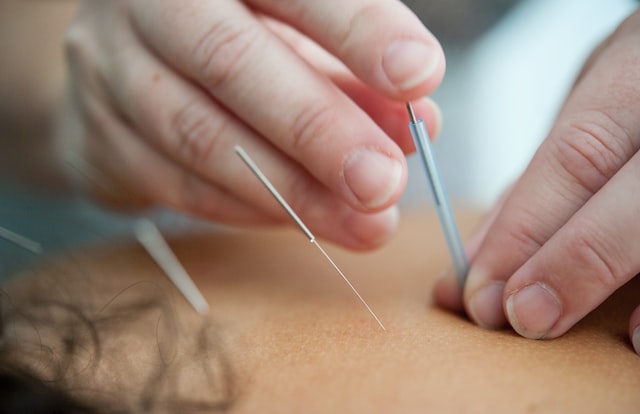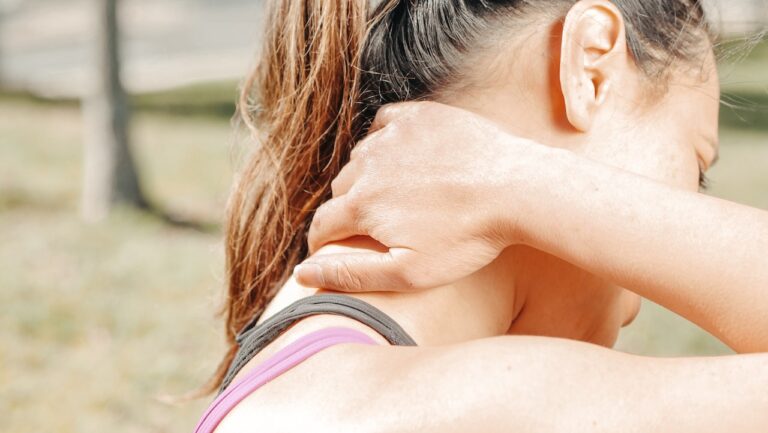What is Acupuncture?
What is it exactly?
Acupuncture is a form of alternative medicine that originated in China over 2,500 years ago. It involves the insertion of thin needles into specific points on the body to alleviate pain and promote healing. In recent years, acupuncture has gained popularity in Western countries as an effective treatment for a variety of conditions, including chronic pain, stress and anxiety, infertility and more. But how exactly does acupuncture work?
Acupuncture is based on the concept of Qi (pronounced “chee”), which is the flow of energy through the body. According to traditional Chinese medicine, Qi flows through channels called meridians, which connect different parts of the body. The acupuncture points we stimulate are located along these meridians. When Qi is blocked or disrupted, it can lead to pain, illness, and other health problems. Acupuncture restores the flow of Qi to promote healing in the body.
What does science say?
Modern research has shed some light on the mechanisms behind acupuncture. When a needle is inserted into the skin, it stimulates sensory nerves under the skin and in the muscles. These nerves send signals to the brain, which releases endorphins, the body’s natural painkillers. Endorphins can reduce pain and promote feelings of relaxation and well-being.
Acupuncture also stimulates the release of other neurotransmitters and hormones, such as serotonin and cortisol. Serotonin is a neurotransmitter that regulates mood and sleep, while cortisol is a hormone that helps the body respond to stress. Acupuncture can help balance these chemicals in the body, leading to improved mood and reduced stress levels.
In addition to its effects on the nervous system, acupuncture also has an impact on the immune system. Research has shown that acupuncture can increase the production of white blood cells, which are essential for fighting infections and diseases. Acupuncture has also been found to reduce inflammation in the body, which can contribute to a variety of health problems, including chronic pain and autoimmune disorders.
What Should I Expect During A Treatment?
One of the unique aspects of acupuncture is that treatments are tailored to the individual. Each person’s body and health needs are unique, so the acupuncturist will carefully assess your condition before determining which points to target, and what other therapies may be needed. Additionally, they may use different points/therapies from one session to another based on how your body is responding to treatment. It is important to pay attention to your symptoms so you can report any changes and improvements to your acupuncturist.
During the acupuncture session, you will be laying on a treatment table or sitting in a recliner (depending on the clinic and your specific needs) and the acupuncturist will insert thin needles into the chosen points. The needles are left in place for a period of time, typically around 20-30 minutes. The acupuncturist may also use other techniques, such as e-stim, cupping or moxibustion (burning a small amount of dried plant material near the skin), to enhance the effects of the treatment.
Most people find acupuncture to be a relaxing and rejuvenating experience. Many clinics play relaxing music and oftentimes people even fall asleep during their treatment!
Does It Hurt?
Acupuncture needles are extremely thin, in fact they are around 10x smaller than a hypodermic needle used for injections. With that said, there is still a chance of discomfort upon insertion of the needle, but it usually only lasts a second. It is all dependent on the person and the location of the point. Some people don’t feel anything at all and some are very sensitive to every single point.
Once the needle is inserted you shouldn’t be in any pain. It is important to communicate with your acupuncturist if you are feeling any pain or discomfort. They can always adjust the needle or even remove it. Communication is key!
There are some normal sensations that you may feel from the needles as you have your treatment. They include sensations of warmth, tingling, and heaviness around the needles. It is also normal to feel a radiating sensation from the needle site to another place on your body. For example if you have a needle in your shoulder you may feel a tingling sensation radiating down your arm to your elbow. These sensations are just the qi flowing. Everyone may have a different awareness to these sensations, so while it is normal to feel them, it is also ok if you feel nothing at all!
Is it safe?
Acupuncture is generally considered safe when performed by a trained and licensed acupuncturist. The most common risks involved are bruising or bleeding at the insertion site, and in rare cases, infection or nerve damage. It is important to let your acupuncturist know about any health conditions you may have so they can provide you with the best and safest treatment possible.
If you are considering acupuncture as a treatment option, it is important to let your other medical providers know, including your doctor, massage therapist, chiropractor etc. This will help ensure that there are no contraindications based on your condition, and help you to time treatments accordingly.
Summary
In conclusion, acupuncture is a traditional form of Chinese medicine that has gained popularity in the West as a safe and effective treatment for a variety of health conditions. Although the mechanism behind acupuncture is not fully understood, research has shown that it can stimulate the release of natural painkillers, hormones and white blood cells. You can expect to receive an individualized treatment plan and an overall relaxing experience.
Leave a comment down below if you found this information helpful, or if you have any other questions.
Disclaimer: Although I am a Licensed Acupuncturist, I am not YOUR Licensed Acupuncturist, and therefore am not giving you medical/health advice. This post is provided for general informational and educational purposes only. This post is not intended and should not be considered or used as a substitute for medical advice, diagnosis or treatment. Always consult a healthcare professional before making any medical/health related decisions.




Sharing is caring the say, and you’ve done a fantastic job in sharing your knowledge on your blog. It would be great if you check out my page, too, at ZQ3 about Thai-Massage.
You absolutely know how to keep your readers interest with your witty thoughts on that topic. I was looking for additional resources, and I am glad I came across your site. Feel free to check my website QH5 about Cosmetics.
Having read your blog, you obviously know what you are talking about. I’m sure visiting my page UQ4 about Podcasting will be worth your time!
Informative articles, excellent work site admin! If you’d like more information about Thai-Massage, drop by my site at FQ4 Cheers to creating useful content on the web!
Great post! I learned something new and interesting, which I also happen to cover on my blog. It would be great to get some feedback from those who share the same interest about Thai-Massage, here is my website UY3 Thank you!
Hey, I enjoyed reading your posts! You have great ideas. Are you looking to get resources about Marketing or some new insights? If so, check out my website FQ6